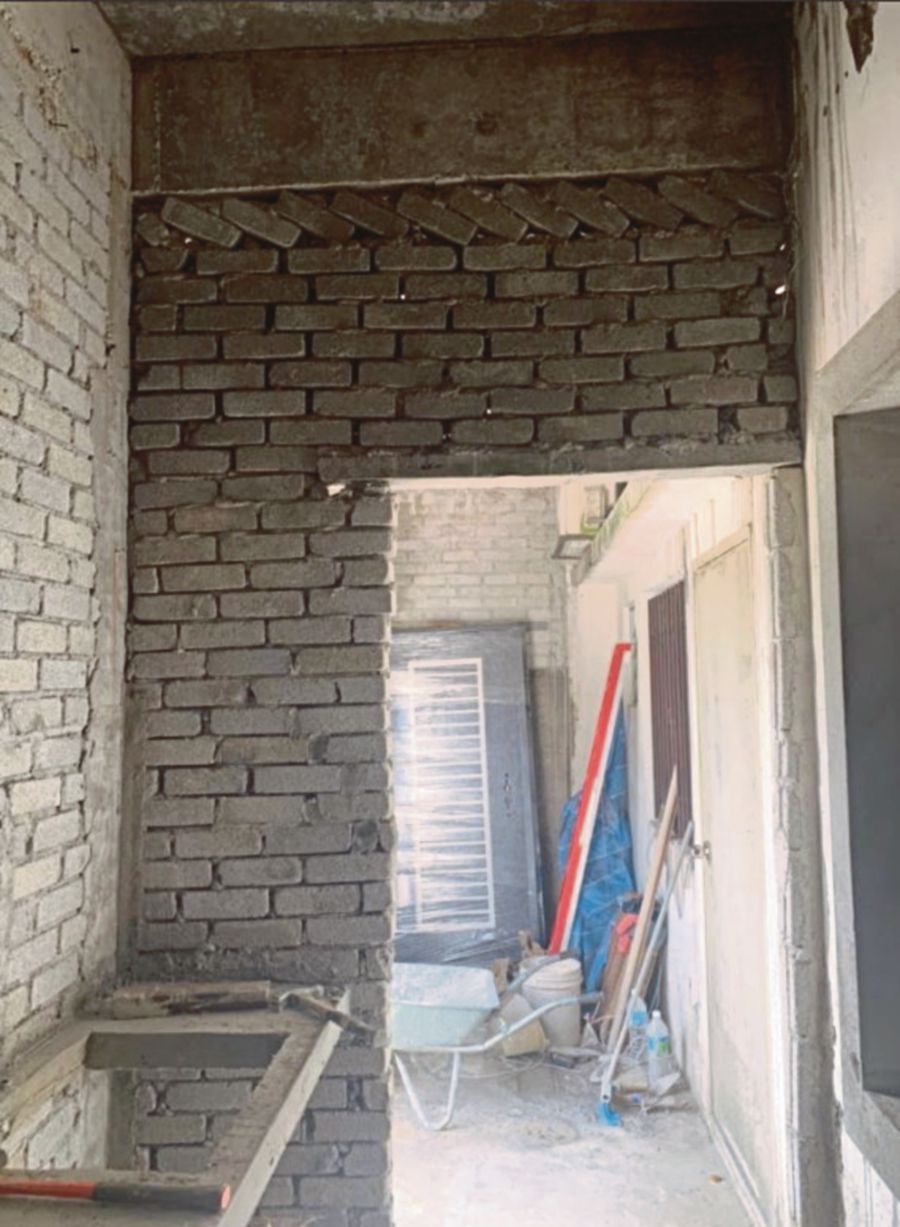KUALA LUMPUR: The Construction Industry Development Board (CIDB) wants local councils to inform the board of the identities of project contractors before approving renovation or construction plans in their municipalities to minimise cases of people being duped.
The new CIDB chief executive officer, Datuk Mohd Zaid Zakaria, says the board also wants greater collaboration with the police so that swifter action can be taken against these unscrupulous individuals.
He says the CIDB has not been sitting idly by on the issue of rogue contractors, having either suspended or blacklisted almost 2,000 contractors from 2020 until October last year.
In his first interview since assuming the role in September last year, Zaid lays out the board's plans to enhance transparency and protect homeowners from falling victim to problematic contractors.
GETTING LOCAL COUNCILS INVOLVED
The New Straits Times, in its special report yesterday, detailed how predatory contractors had used their CIDB credentials to gain the trust of customers and take their money before abandoning the renovation or construction projects.
It was reported that some blacklisted contractors had even used the licences of other people to circumvent the problem.
Zaid, in response, says local councils should ask homeowners to disclose the identity of their contractors and check for their registration before approving their work permits.
"Our request to the local authorities is to include a line in the work permit mandating homeowners to hire registered contractors and name their contractors.
"The local authorities can then do the necessary (to check whether they are registered via the CIDB's website)."
Zaid also calls on local authorities to adopt what is practised in developed nations, such as displaying details of the contractor on signs at the renovation site.
This, he adds, will raise public awareness about the company or person that is carrying out the renovation and discourage subpar work or the abandonment of the project.
"In developed countries, homeowners typically place a sign in front of their house when they undertake renovations.
"This sign contains information about the project, including the duration and the contractor's name. This way, even amid the din, people in the vicinity are aware of when the project will conclude.
"The contractor will be wary about running away halfway through because everyone knows who is working on the project."
In its report yesterday, the NST also highlighted that the public's lack of awareness on the need to report problematic contractors to the CIDB, the regulatory body, had led them to lodge only police reports.
The lack of coordination between the police and the CIDB has led to these problematic contractors escaping punishment.
Acknowledging the problem, Zaid says efforts will be made to have the police channel relevant reports to the CIDB for better collaboration.
"We will ask the police to inform homeowners that they can't take action as it is not a criminal case and that it is a civil case. We will also ask them to direct the homeowners to the nearest CIDB office or ask them to send an email to us."

WHY SOME CIDB-LICENSED CONTRACTORS REMAIN PROBLEMATIC
Zaid is terse in his assessment of such contractors: they are either scammers or just plain incompetent.
"Renovations are harder than construction because you are dealing with an existing structure. You need to have the technical knowledge and the skills to deal with homeowners and their neighbours," he says.
Zaid says contractors offering renovation services must hold a B28 licence that is obtained through courses and assessments, which ensure proficiency in technical aspects, risk assessment, project management and pricing, among others.
Homeowners should also ensure that the contractor's workers are registered.
"They may go to our website and enter the workers' identity card or passport numbers to check whether they have our certified green card. The card will also provide homeowners with information on the workers' skills. For example, if he has what it takes to do tiling work."
Zaid says licensed contractors who fail to complete their work satisfactorily or have a record of wrongdoing may be suspended, lose their licences, or be blacklisted.
Almost 2,000 contractors have had their licences cancelled or suspended between 2020 and October last year for providing invalid project declarations to avoid paying levies and producing false documents, among other offences.
He warns contractors against letting others use their licences to secure jobs, saying that action will be taken against them if any issues arise.
ENSURING SUSTAINABLE COMPETENCE
Zaid says licensed CIDB
contractors are required to attend courses and amass development points to maintain competency accreditation.
"Obtaining a licence is not the end of it. The contractor must attend courses and collect points to renew their B28 licence and increase knowledge."
Zaid outlines the four Ms that homeowners must look for before hiring contractors: machinery, manpower, money and management.
"They need to make sure the contractors have all these and avoid hiring just because they know that person.
"Money is very important, but a client should pay only according to the progress of the work.
"That is why you have to make sure the contractor has the capital," he says, adding that this will also prevent clients from overpaying contractors.
Another way for homeowners to protect themselves is by getting the contractor to provide a performance bond.
"It is rare for small renovations to have performance bonds, but in high-value projects, such as government or private-sector projects, the contractor will keep a sum of money in the bank and enter into an agreement saying that if he fails to complete the job, the bond will be confiscated by the client.
"This is again why I emphasise that homeowners choose contractors with capital.
"These are the people who can provide a performance bond," he says.
It is also important for homeowners to ensure that their contractors secure insurance coverage for both parties, he adds.
"Insurance is compulsory. Let's say a renovation causes your neighbour's house to collapse. Who will pay for it?
"The neighbour may take you to court and win the case. So, you need to cover yourself by making sure the contractor takes out insurance.
"As for the contractors, insurance is important in case there is an accident due to their negligence," he says.
USE CIDB CONTRACT TEMPLATES
Zaid urges homeowners to use templates of agreements that are featured on the board's website, which will assist them in the event they seek redress.
The templates, he adds, are fair to both parties.
"We have prepared a very simple form on our website, which homeowners can download and fill out.
"No lawyers are needed. They can do it themselves in mutual agreement with their contractor before getting it stamped," he says, adding that the agreement will come in handy if they pursue legal action or compensation from the Consumer Claims Tribunal.
Zaid says CIDB is ramping up a campaign, which includes roadshows, to raise awareness not only of the hiring guidelines but also of its role.
"Recently, we produced videos to educate and warn the public about scammers who act like contractors. We have roadshows, and we also disseminate information on our website.
"But I am sure not everyone would have come across the video, so I think we have to work harder.
"I have asked contractor associations and others to also help us educate the community."






